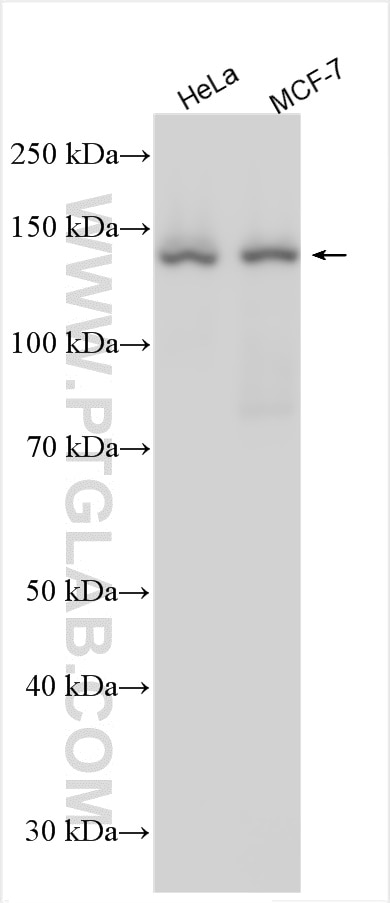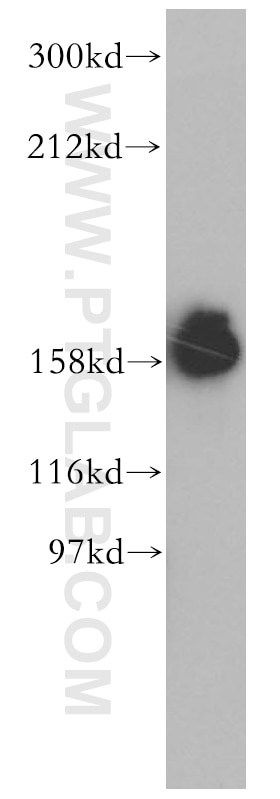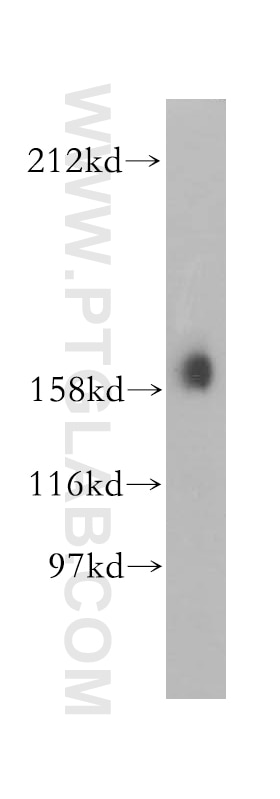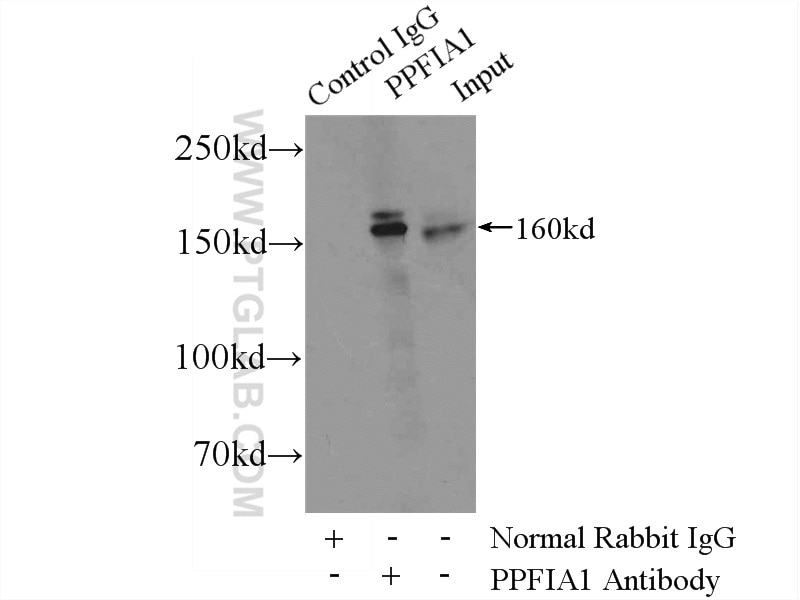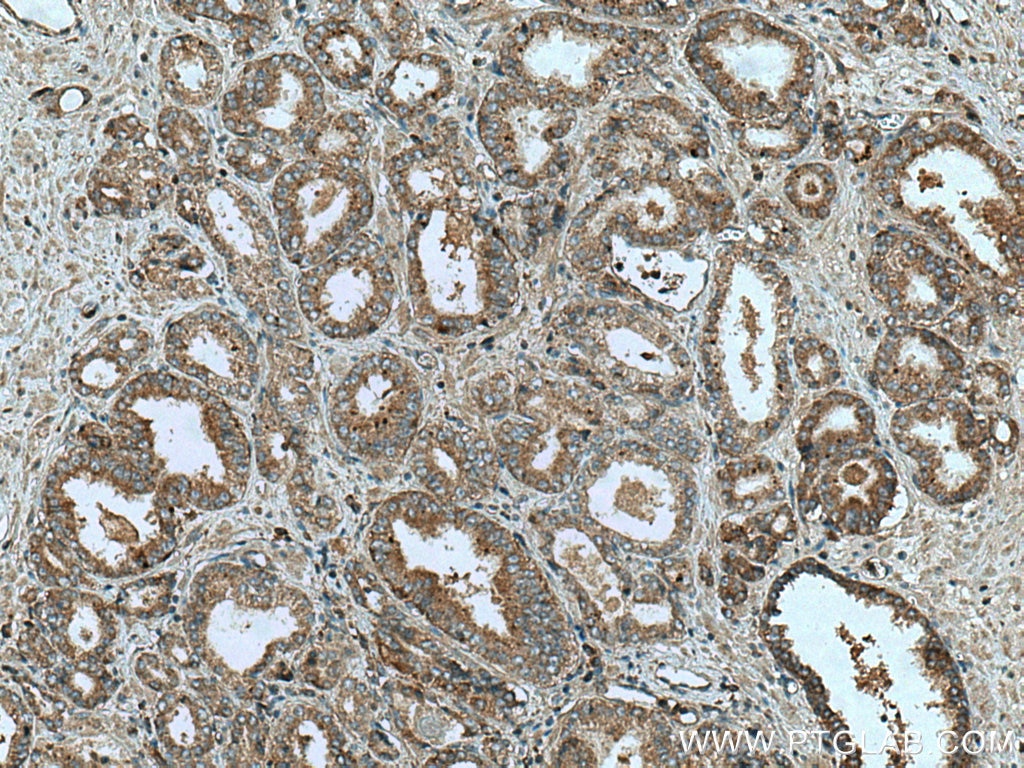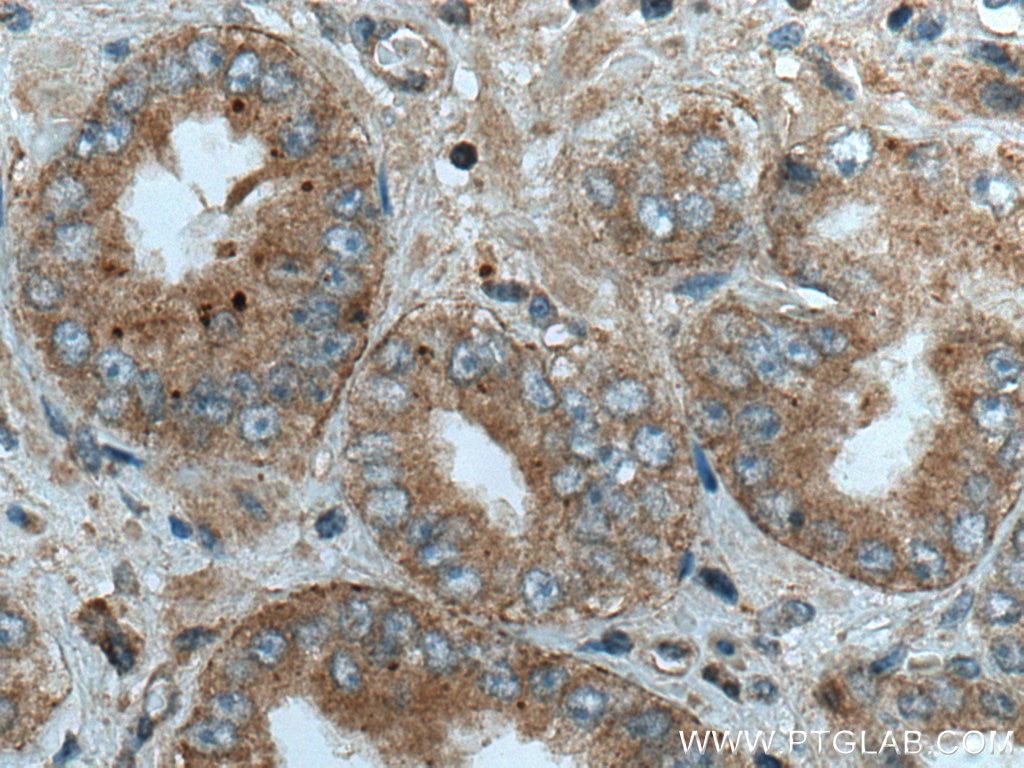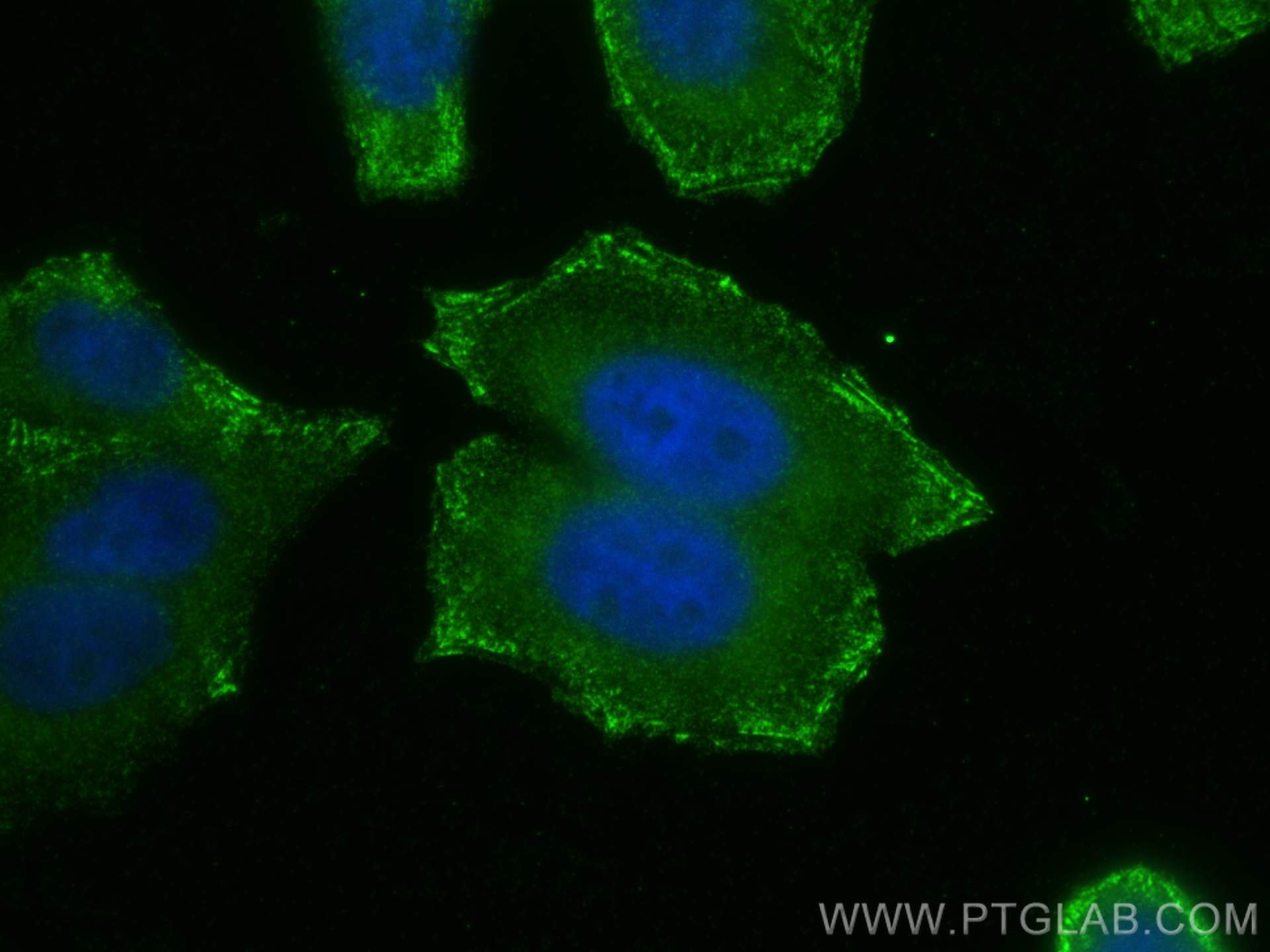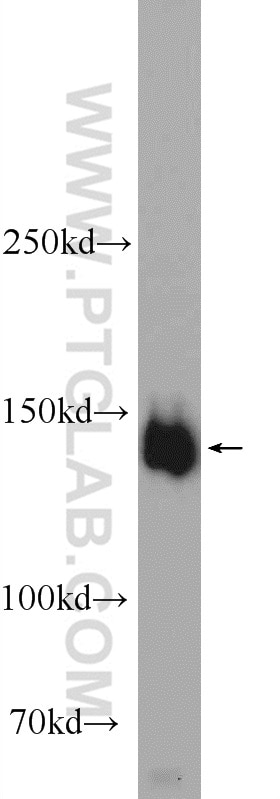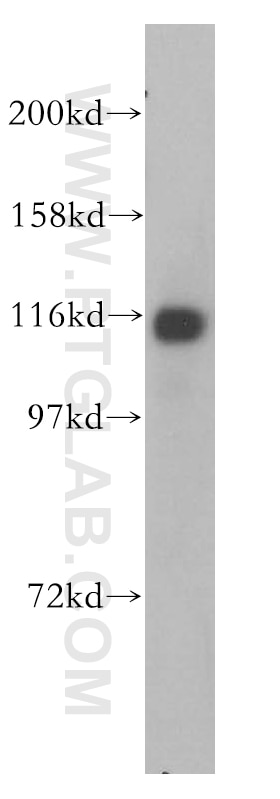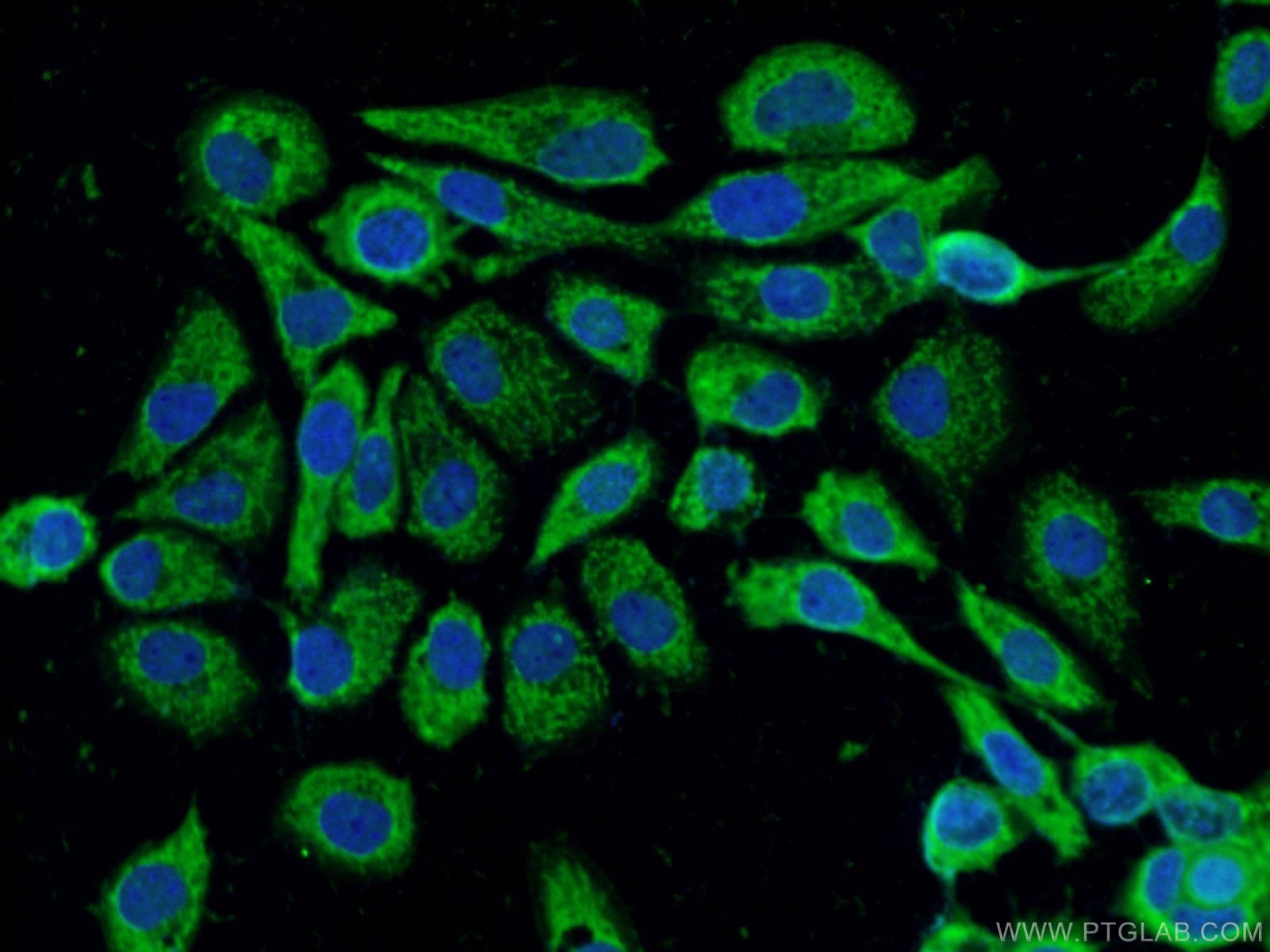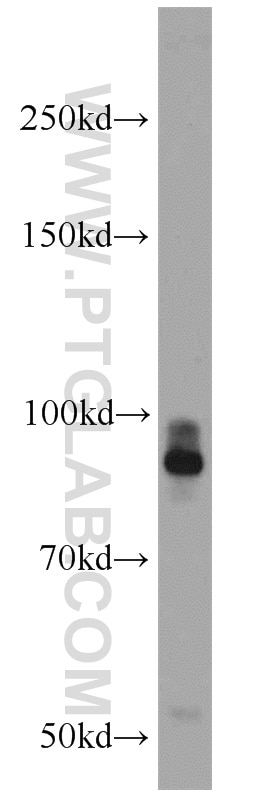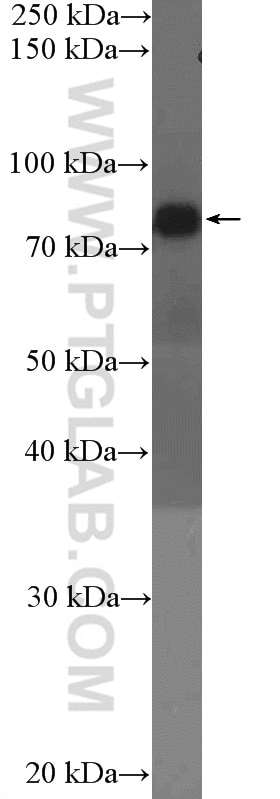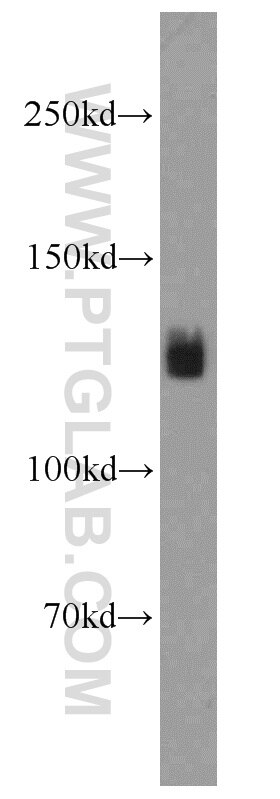- Phare
- Validé par KD/KO
Anticorps Polyclonal de lapin anti-Liprin Alpha 1
Liprin Alpha 1 Polyclonal Antibody for WB, IP, IF, IHC, ELISA
Hôte / Isotype
Lapin / IgG
Réactivité testée
Humain, rat, souris et plus (1)
Applications
WB, IHC, IF/ICC, IP, ELISA
Conjugaison
Non conjugué
N° de cat : 14175-1-AP
Synonymes
Galerie de données de validation
Applications testées
| Résultats positifs en WB | cellules HeLa, cellules MCF-7 |
| Résultats positifs en IP | cellules MCF-7 |
| Résultats positifs en IHC | tissu de cancer de la prostate humain, il est suggéré de démasquer l'antigène avec un tampon de TE buffer pH 9.0; (*) À défaut, 'le démasquage de l'antigène peut être 'effectué avec un tampon citrate pH 6,0. |
| Résultats positifs en IF/ICC | cellules HepG2, |
Dilution recommandée
| Application | Dilution |
|---|---|
| Western Blot (WB) | WB : 1:2000-1:12000 |
| Immunoprécipitation (IP) | IP : 0.5-4.0 ug for 1.0-3.0 mg of total protein lysate |
| Immunohistochimie (IHC) | IHC : 1:50-1:500 |
| Immunofluorescence (IF)/ICC | IF/ICC : 1:50-1:500 |
| It is recommended that this reagent should be titrated in each testing system to obtain optimal results. | |
| Sample-dependent, check data in validation data gallery | |
Applications publiées
| KD/KO | See 10 publications below |
| WB | See 18 publications below |
| IHC | See 3 publications below |
| IF | See 20 publications below |
Informations sur le produit
14175-1-AP cible Liprin Alpha 1 dans les applications de WB, IHC, IF/ICC, IP, ELISA et montre une réactivité avec des échantillons Humain, rat, souris
| Réactivité | Humain, rat, souris |
| Réactivité citée | Humain, singe, souris |
| Hôte / Isotype | Lapin / IgG |
| Clonalité | Polyclonal |
| Type | Anticorps |
| Immunogène | Liprin Alpha 1 Protéine recombinante Ag5381 |
| Nom complet | protein tyrosine phosphatase, receptor type, f polypeptide (PTPRF), interacting protein (liprin), alpha 1 |
| Masse moléculaire calculée | 1202 aa, 136 kDa |
| Poids moléculaire observé | 140-160 kDa |
| Numéro d’acquisition GenBank | BC034046 |
| Symbole du gène | Liprin Alpha 1 |
| Identification du gène (NCBI) | 8500 |
| Conjugaison | Non conjugué |
| Forme | Liquide |
| Méthode de purification | Purification par affinité contre l'antigène |
| Tampon de stockage | PBS avec azoture de sodium à 0,02 % et glycérol à 50 % pH 7,3 |
| Conditions de stockage | Stocker à -20°C. Stable pendant un an après l'expédition. L'aliquotage n'est pas nécessaire pour le stockage à -20oC Les 20ul contiennent 0,1% de BSA. |
Informations générales
Liprin alpha 1, encoded by the PPFIA1 gene, is a member of the LAR protein-tyrosine phosphatase-interacting protein (liprin) family. Liprins interact with members of LAR family of transmembrane protein tyrosine phosphatases, which are known to be important for axon guidance and mammary gland development. Liprin alpha 1 may regulate the disassembly of focal adhesions and thus help orchestrate cell-matrix interactions (PMID: 7796809). Alternatively spliced transcript variants encoding distinct isoforms have been described.
Protocole
| Product Specific Protocols | |
|---|---|
| WB protocol for Liprin Alpha 1 antibody 14175-1-AP | Download protocol |
| IHC protocol for Liprin Alpha 1 antibody 14175-1-AP | Download protocol |
| IF protocol for Liprin Alpha 1 antibody 14175-1-AP | Download protocol |
| IP protocol for Liprin Alpha 1 antibody 14175-1-AP | Download protocol |
| Standard Protocols | |
|---|---|
| Click here to view our Standard Protocols |
Publications
- Journal Impact Factor
- Most recent
| Species | Application | Title |
|---|---|---|
Nat Commun Structural basis of liprin-α-promoted LAR-RPTP clustering for modulation of phosphatase activity. | ||
EMBO J The CEP170B-KIF2A complex destabilizes microtubule minus ends to generate polarized microtubule network
| ||
Nat Commun PPFIA1 drives active α5β1 integrin recycling and controls fibronectin fibrillogenesis and vascular morphogenesis.
| ||
Elife Local activation of focal adhesion kinase orchestrates the positioning of presynaptic scaffold proteins and Ca2+ signalling to control glucose-dependent insulin secretion. | ||
Mol Oncol Liprin-α1 contributes to oncogenic MAPK signaling by counteracting ERK activity
| ||
Stem Cells Transl Med Enhanced structure and function of human pluripotent stem cell-derived beta-cells cultured on extracellular matrix. |
